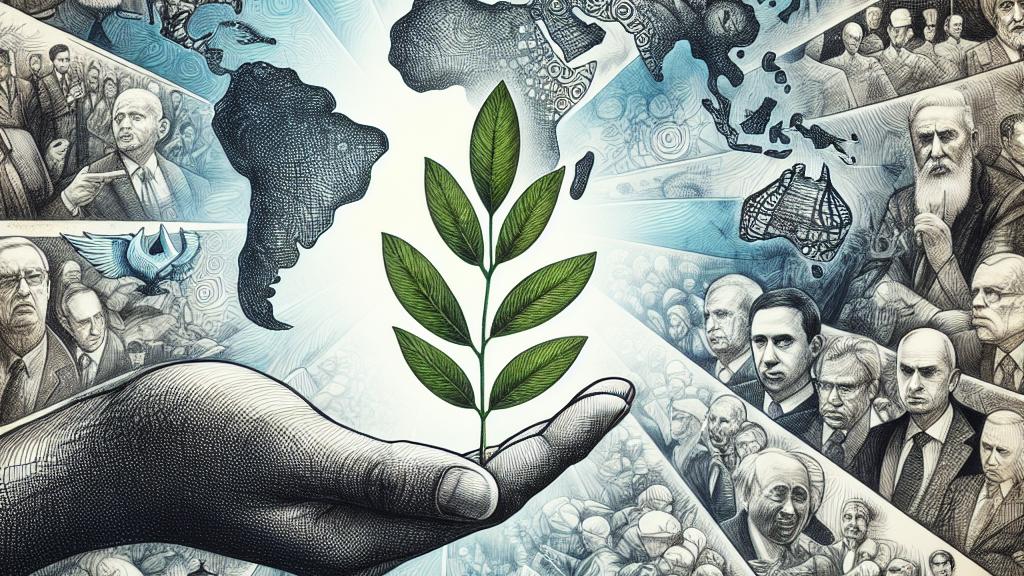The Game of Nuclear Diplomacy: Iran's Supreme Leader Extends an Olive Branch to the U.S.
Overview
- Iran's Supreme Leader, Ayatollah Khamenei, signals readiness for renewed negotiations with the U.S. on nuclear issues.
- Regional hostilities, especially the Israel-Hamas conflict, create a complex backdrop for potential diplomatic progress.
- U.S. officials emphasize that Iran's actions will determine the seriousness of its diplomatic overtures.

A Surprising Diplomatic Shift
On August 27, 2024, Iranian Supreme Leader Ayatollah Khamenei announced an unexpected willingness to engage in negotiations regarding Iran's nuclear program with the United States. This sentiment marks a profound shift in Iran's foreign policy, potentially influenced by a combination of internal and external pressures. Khamenei's comments came shortly after mediated discussions between Iran and the U.S. via Oman and Qatar, suggesting a growing openness to diplomatic dialogue. The tangled history between Iran and the U.S., from the 1953 coup to the 1979 Islamic Revolution and beyond, underpins this cautious approach. Khamenei’s willingness to engage with a nation he has labeled an 'enemy' illustrates the complexities of navigating a path forward amid deeply entrenched distrust.
Increased Nuclear Ambitions and Regional Tensions
The resurgence of discussions around Iran's nuclear program occurs against a backdrop of heightened nuclear ambitions following the dissolution of the 2015 nuclear agreement. Since the U.S. re-imposed strict sanctions under former President Trump, Iran has ramped up its uranium enrichment efforts, now nearing levels that are alarmingly close to weapons-grade. Analysts warn that Iran could potentially amass sufficient enriched uranium for a nuclear weapon within a month if it opts to pursue that path. Amid rising tensions, particularly due to the Israel-Hamas conflict, the U.S. stands firm in its position that diplomatic credibility hinges on Iran's willingness to cooperate with the International Atomic Energy Agency (IAEA) and curb its nuclear escalation. This critical juncture represents a significant opportunity for both sides, yet the stakes are equally high given the potential for conflict.
Navigating the Political Landscape and Future Prospects
As the diplomatic scene evolves, the political dynamics in both Iran and the United States introduce significant complexities to the nuclear negotiations. In Iran, President Masoud Pezeshkian's reformist administration seeks a platform for improving ties with Western powers, but is continuously tempered by Khamenei's cautious directives. With the U.S. presidential elections looming in November 2024, the potential for shifts in U.S. policy further complicates the interaction between the two nations. This historical juncture holds the possibility for a fresh diplomatic engagement, yet it is shadowed by the legacy of previous failed negotiations and a prevailing sense of mistrust. The international community watches closely, aware that the outcomes of these discussions could have lasting implications for security and stability in the Middle East, as well as global norms concerning nuclear proliferation.

Loading...